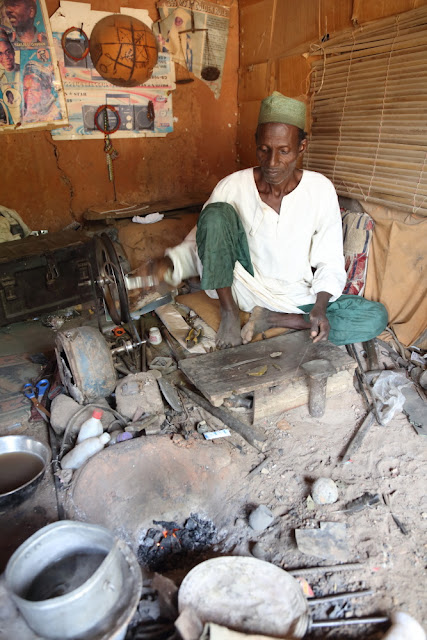 |
| calabash fishing, never without my umbrella in the rainy season |
It is two and half hour drive north of Abuja. A very smooth road at the moment which stretches past the Aso Rock where the presidential palace is located.
But road is not the only way to come to Kaduna. There is a small airport served by a few airlines, punctuality aside. And there is also a railway and rumours of a high-speed train between Abuja and Kaduna.
 |
| Kaduna State House of Assembly |
The city is also crossed by the Kaduna river where fishermen traditionally go fishing floating on the back of a huge calabash.
The city has very few landmarks besides a colonial building which was serving as the center of the british administration, it was created for Lord Lugard. It is now called the Kaduna State House of Assembly. There also a a large hotel from the 70s with arts and craft.
 |
| cleaning locally carved calabashes |
Kaduna has a museum under renovation at the moment (timing is unclear) and at the back a few craftsmen working silver and other metals. An old man is designing small stylized animals.
Kaduna has a large muslim population but christians are well represented too.
 |
| the workshop of the small metal animals |
Comments
Post a Comment